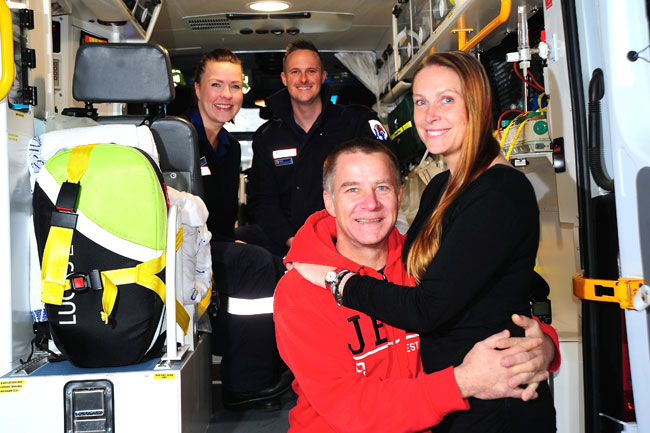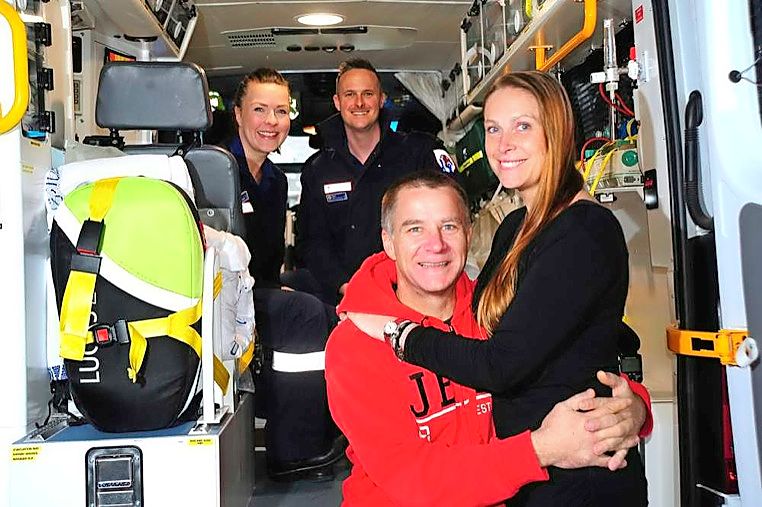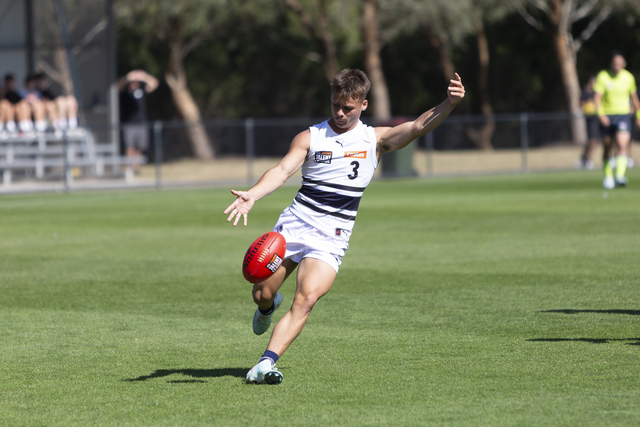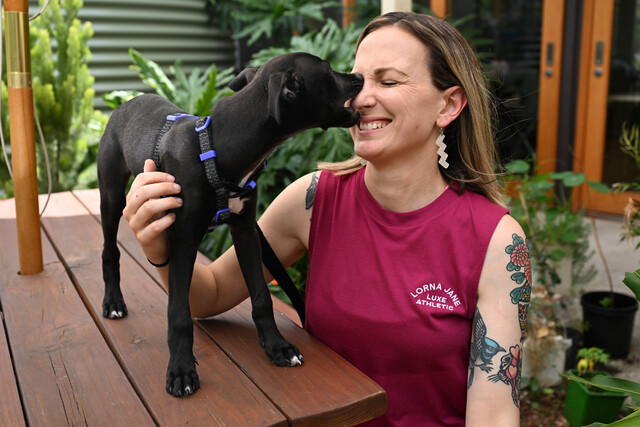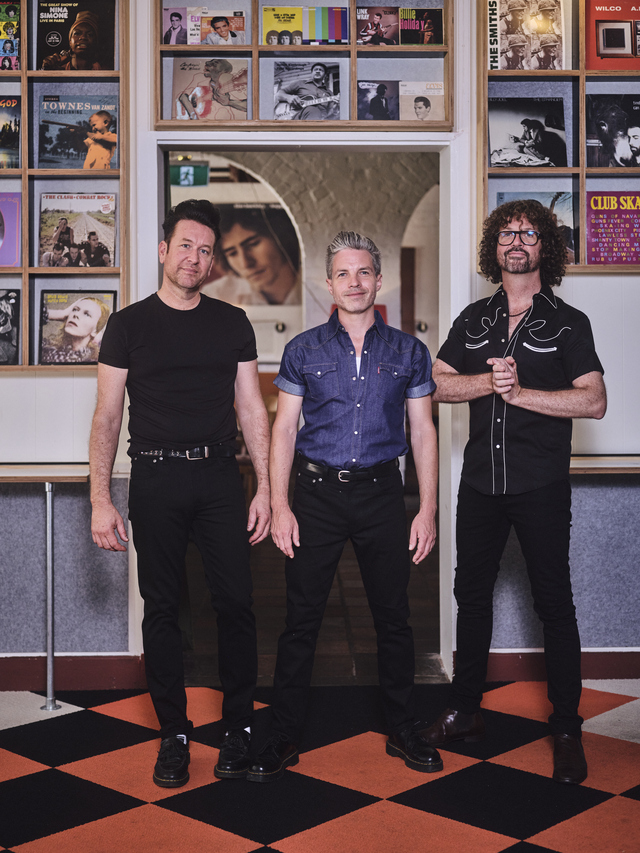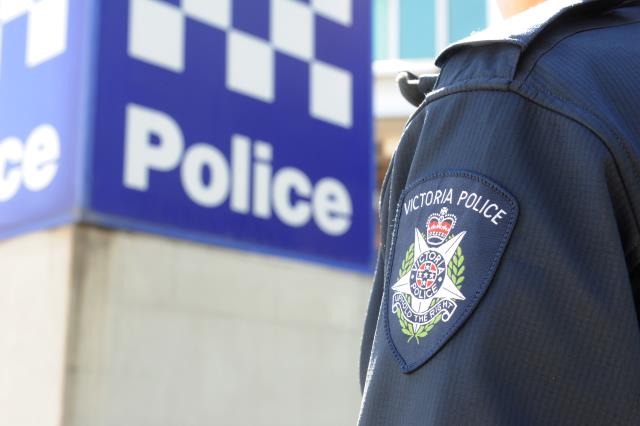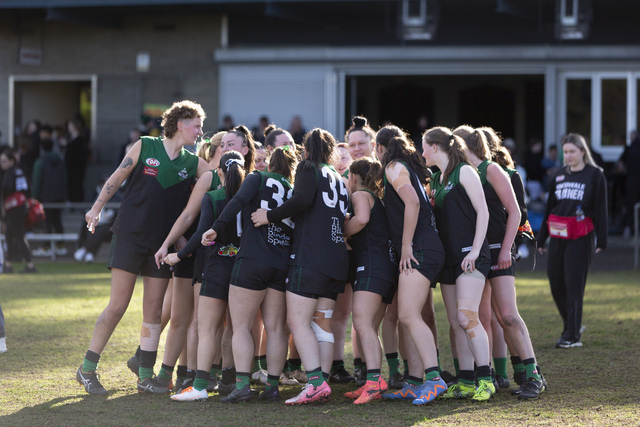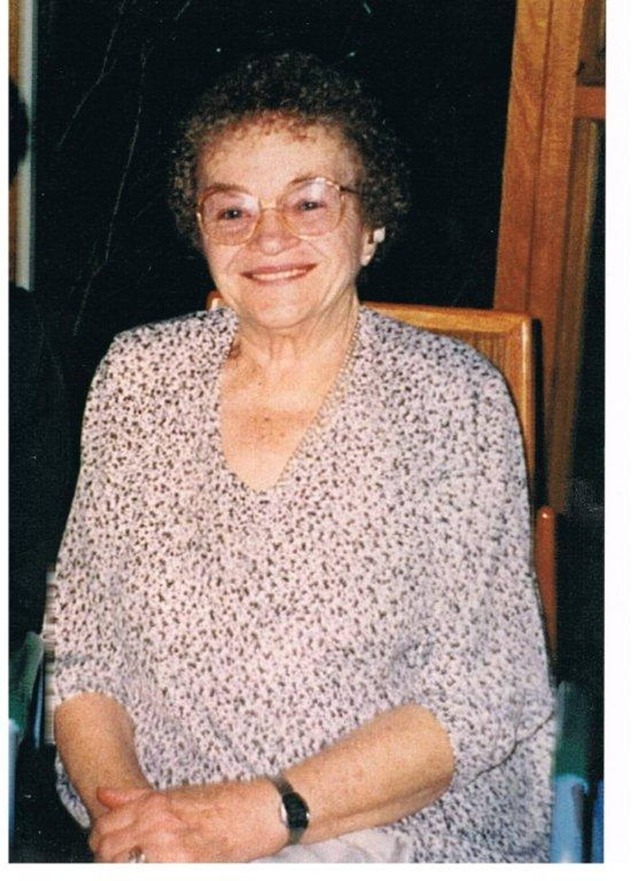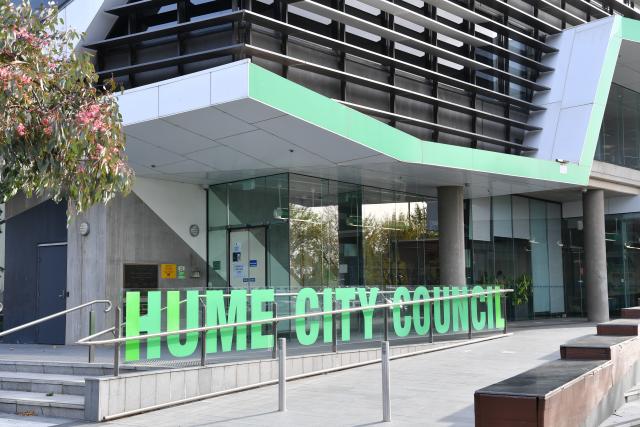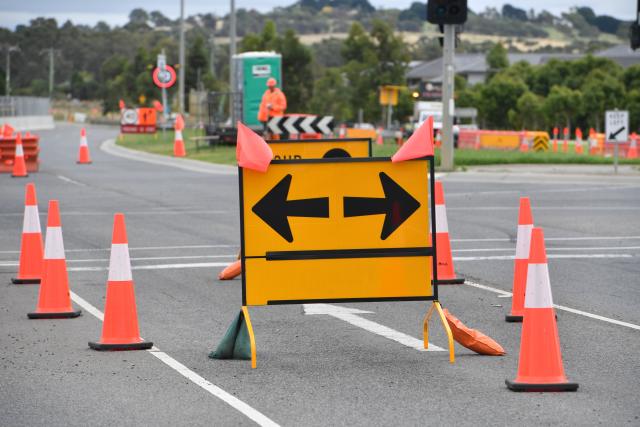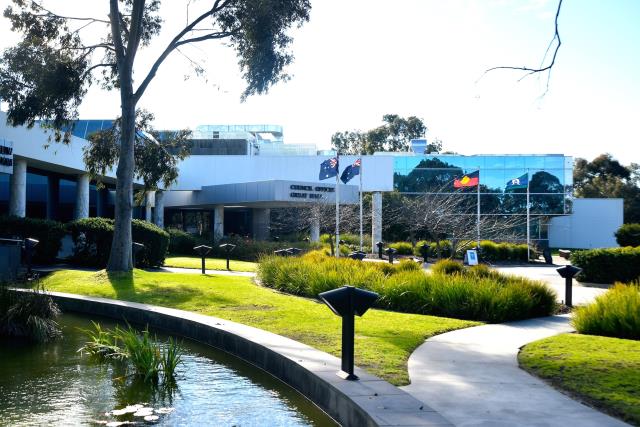Melyssa Wilson never imagined she would need to use her first-aid training on a loved one.
But in the early hours of May 12, she needed all her training to perform CPR on her partner, Colin Zabenko, after he suffered a cardiac arrest.
Mr Zabenko, 48, woke Ms Wilson shortly after 3am to tell her a planned fishing trip on Port Phillip Bay had been cancelled.
Moments later, he was lying back on the bed unconscious.
Ms Wilson quickly called triple-0 and performed CPR for 15 minutes while she waited for paramedics to arrive at their Mernda home.
MICA paramedics Haley Fothergill and Mark Hobson were first on the scene and placed Mr Zabenko in an induced coma.
They have credited Ms Wilson’s quick thinking and use of CPR with helping save Mr Zabenko’s life.
Mr Hobson said that the outcome could have been very different if Ms Wilson hadn’t been so quick to perform CPR. Mr Zabenko and Ms Wilson recently met with the paramedics to help come to terms with what happened.
Mr Zabenko, who has had a defibrillator and pacemaker fitted, spent two days in intensive care at Northern Hospital.
He said meeting Ms Fothergill and Mr Hobson would hopefully help with his recovery.
“I kept having dreams and I thought I’ve got to meet them to get closure,” he said.
Ms Wilson described the experience as one of the scariest moments of her life.
“If he hadn’t woke me up, there was a chance I would have woken up with him dead beside me,” she said.
“When I was performing the CPR, I didn’t have time to think about what I was doing. Not once did I think that he wouldn’t be OK. Performing CPR on someone you care about is scary.”
Ambulance Victoria emergency co-responder programs manager Trevor Weston said Mr Zabenko’s case highlighted the importance of early CPR, which is one of the key links in the ‘chain of survival’.
“The six steps in the ‘chain of survival’ are, early recognition of cardiac arrest, early access to emergency care (calling triple-0), early CPR, early defibrillation, early advanced care (paramedics) and definitive care (hospital),” he said.

